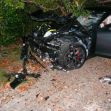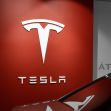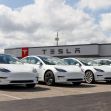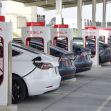The California Department of Motor Vehicles is pursuing a suspension of Tesla’s licenses to manufacture and sell vehicles in the state, claiming the company misled consumers by promoting its driver assistance features in ways that suggest its cars are fully autonomous.
In a trial brief filed July 17, 2025, the DMV argues that Tesla’s use of the terms “Autopilot” and “Full Self-Driving Capability” creates a false impression about the level of automation in its vehicles. While Tesla drivers must remain fully engaged and attentive at all times, the DMV says the company’s advertising implies otherwise, violating state consumer protection laws.
The DMV’s case focuses on marketing statements that appeared on Tesla’s website in 2021 and 2022. These included language suggesting the vehicle could drive itself based on calendar appointments, navigate complex intersections, and park without driver assistance. The Department says this messaging could lead the public to believe Tesla’s vehicles are self-driving when they are not.
Under California law, only vehicles operating at Level 3 or higher on the Society of Automotive Engineers’ scale are considered autonomous. Tesla’s current driver assistance systems are classified at Level 2, meaning a licensed driver must be in control at all times.
In 2022, California passed a law barring companies from naming or describing driver assistance features in ways that would cause a reasonable person to think a vehicle can drive itself. That law, known as Vehicle Code section 24011.5, was drafted in part due to concerns about Tesla’s branding and marketing practices. According to legislative records, lawmakers believed terms like “Autopilot” and “Full Self-Driving” were contributing to confusion and increasing road safety risks.
The DMV states that Tesla’s use of these terms violates the new statute, as well as provisions of the Consumer Legal Remedies Act and the Vehicle Code that prohibit false or misleading advertising. The Department argues that the presence of disclaimers or fine print in other materials does not protect Tesla from liability, especially when prominent product names or marketing statements suggest a level of autonomy the vehicles do not possess.
The Department plans to call two witnesses: a supervising officer from the DMV’s Valley Area Command who investigated Tesla’s advertising, and a legal expert on automation who serves on the SAE’s On-Road Automated Driving Standards Committee.
Tesla is expected to challenge the DMV’s position by arguing the statutes are unconstitutional or that its disclosures to consumers were sufficient. However, the DMV notes that administrative agencies are not permitted to disregard a law’s validity unless an appellate court has already ruled it unconstitutional. The Department also maintains that under long-standing legal precedent, commercial speech that is misleading is not protected under the First Amendment.
The DMV is requesting that Tesla’s licenses be suspended for at least 30 days. It is also seeking restitution, with the amount to be determined at a later date.
A 5-day hearing before the California Office of Administrative Hearings are taking place this week.






